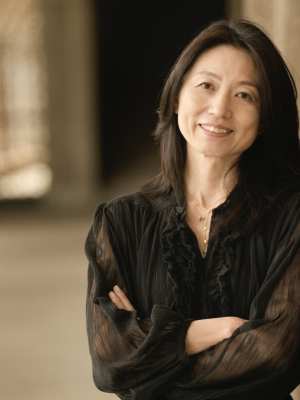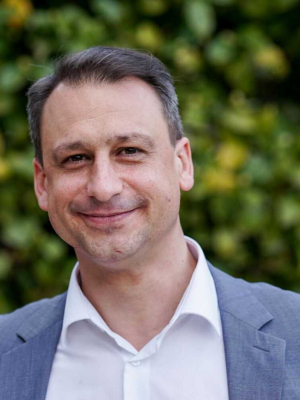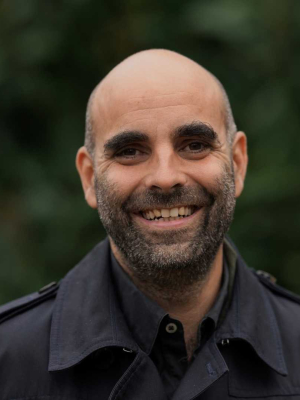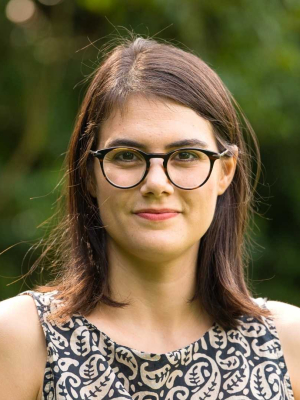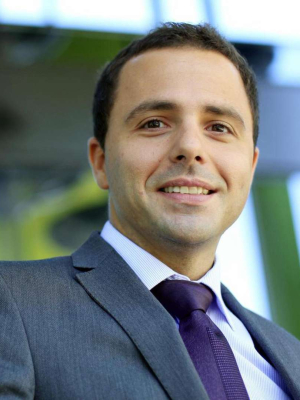The division of Communication, History, and Politics (CHP) focuses on the development of human, organizational, societal, and international relations over time.
The CHP faculty members are experts in their respective fields and bring their research and professional experience to bear on their teaching in the classroom.
Our main educational focus in on experiential learning because it gives agency to students and facilitates discovery and personal growth. We will provide you with the support you need and the opportunity to closely work with your professors and advisors from your first day at Franklin, to the successful completion of your studies.
The CHP division offers a total of five majors: Communication and Media Studies, History, International Relations, Political Science, and Political Science with an emphasis on Global Political Economy.
Many of our majors can be combined with other majors (within and across divisions) and we offer a range of associated minor that allow students to tailor-make their educational experience. We are also very proud of being part of the legal studies and post-colonial programs at FUS.
We encourage our students to actively participate not only in the classroom, but in campus life more broadly. Feel invited to join our lecture series, open divisional meetings, our events with alumni, and our student led organizations, like the Political Discourse Society, or the Honors Society.
Our programs and our Liberal Arts focus aim to equip students with in-depth disciplinary knowledge, while enabling them to address real world challenges in an interdisciplinary way. Students with degrees from CHP have gone on to leading graduate schools, public service, IOs and NGOs. Many of our students also opt for the private sector and companies in a broad range of areas, including: museums and galleries, online and print media, publishing companies, administrations, and consulting and legal firms. Please also have a look at our Alumni and student testimonials.
HIGHLIGHTS

Franklin Political Risk and Opportunity Index (FRISKOP)
In the Energizing Breakfast Club (EBC) of Wednesday November 2, The Franklin Political Risk and Opportunity Index (FRISKOP) was presented. FRISKOP is an initiative by Oliver Strijbis, Bernd Bucher, and Juliette Schwak, Professors of Political Science at FUS. It is the first political risk index that combines quantitative measures of the probability of geopolitical events and an assessment of their potential economic impacts.
The aim of FRISKOP is to make the FUS more visible both among academics and practitioners by providing frequently updated and accurate political risk assessments. According to Strijbis, political risks can be understood as the combination of the likelihood of a political event happening and its potential impact on the economy. Hence, it describes the expected harm or benefit from a political event in the future. This information is crucial for political risk analysist in varying fields spanning from NGOs and the media to the finance and insurance industry. Consequently, FRISKOP will be useful for a large international audience.
FRISKOP is based on innovative methodology including prediction market forecasts. Prediction markets are virtual stock markets on which “traders” bet on the likelihood of future political events. The data used for FRISKOP stem from PREMIA – a prediction market conducted at the University of Zurich. In order to estimate the potential economic impact of these political events, Strijbis, Bucher, and Schwak additionally conduct an expert survey among scholars and practitioners in IR and political economy.
It is planned that FRISKOP will go online in January 2023.
FEATURED PUBLICATION
The Ottoman Consul during the Cholera Epidemic of 1867
This article reconstructs the international management of the choleric wave in the Adriatic Sea during the summer of 1867. It aims to write a short history of the fight against cholera in the 1860s from an Ottoman perspective. In this period, the Ottoman consular network played a pivotal role in monitoring the spread of epidemics in the eastern Mediterranean. In their dispatches and reports, the Ottoman consuls described and analysed the sanitary measures adopted in their territories and by other countries, such as the Kingdom of Italy, the Principality of Montenegro and Austria-Hungary. In doing so, they highlighted positive and negative outcomes of sanitary measures and described their personal contribution to the containment of epidemics.
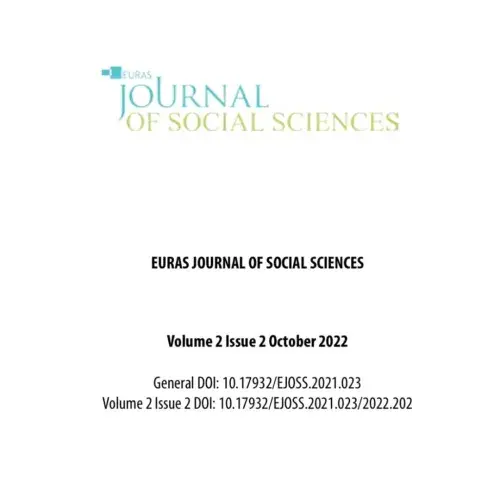
Students & Alumni
Jordan Ricker '16
At Franklin, I learned how to see things not just from one perspective, but from multiple (and sometimes contradictory) perspectives, all of which are important in providing a more holistic view of a situation. This has helped me tremendously in my development both personally and professionally, as I was able to apply both my classroom and out-of-classroom learnings when I worked in Ghana and South Africa for a travel start-up and needed to successfully work with various different stakeholders with varying racial, socio-economic, linguistic, national, and ethnic backgrounds.
Regarding my educational pathway after Franklin, I first completed a bilingual French/English MA in Contemporary European History at the University of Luxembourg, and I am now pursuing an MA in Comparative History at Central European University (CEU) in Vienna, Austria.
The rigorous academics and the multicultural setting at Franklin allowed me to hit the ground running with these MA programs, as the University of Luxembourg is a tri-lingual university with approximately half of its students being international while CEU has more than 70% of its students coming from outside the EU. Additionally, CEU's demanding academic environment feels encouraging rather than intimidating due primarily to my experience at Franklin of professors focusing on the individual intellectual development of students.
As such, it was a very natural transition from Franklin to these other international universities for me. The skills I gained at Franklin, especially intercultural awareness, academic rigor, and an open mind, have been incredibly useful assets in both my professional and academic journeys as well as in my own personal development. I wouldn't trade my experience at Franklin for anything.

Eric Bishel '20
Words like “interdisciplinary” and “transnational” have become higher-ed buzzwords these days, gracing college websites from Rome to Shanghai.
Speaking from my own experience, few have been able to embrace these concepts as successfully as Franklin. With a combined major in Political Science and History, I spent my time exploring new ways to use these disciplines side by side. My studies culminated in my thesis, “Instruments of Memory: Human Rights Memorials for the Holocaust”, which explored the Universal Declaration of Human Rights as a new kind of memorial for mass suffering. In its writing, I drew both on independent research but also, quite strongly, on the classes that I had taken. I went through my old syllabi, for readings and class discussions that had made such an impact on me that I still remembered their content years later. As time has gone on, I still find myself drawing on what I learned at Franklin in conversations and experiences.
It encouraged me to think outside borders, bridging gaps across cultures and preparing me for a workplace like the UN, where everyone is the only one from their country. Franklin took me to three continents and 12 countries, each with their own distinct ways of working, governing, and living. Inter-cultural communication and inter-disciplinary experience are the best training one can get for a career in international policy, where quick and creative engagement with foreign ideas is a necessity. Franklin facilitated and engaged both those things, giving me the tools and knowledge I need to understand and explore the world.

Campbell Pair '22
My name is Campbell Pair and I am from Atlanta, Georgia, United States of America. I am a senior majoring in International Relations, with minors in Legal Studies, Italian, and History. Over the course of my time here at Franklin, I have had opportunities and experiences that I could not have had anywhere else —from meeting the Georgian Speaker of Parliament, to sitting in on a meeting at the OSCE in Vienna, to being able to attend the Athens Democracy Forum in Athens, Greece.
In addition to these opportunities, being able to learn from Professors that have had experiences working in their fields and have not focused only on the academics of the course subject, allows for a perspective that is difficult to research. Moreover, it is the professors and staff that have allowed Franklin to have such a positive impact on me; talking with them not only concerning classes but also about current events and our own lives. They have encouraged me to seek various different career paths, including what I am now planning on doing once I graduate, which will be to work on political campaigns in the U.S.

Nauf Mawla '11
What I loved most about Franklin is that from the moment you step foot onto campus, you become part of a multinational and cross-cultural environment that stays with you long after you graduate. It’s an experience that everyone deserves, and I would do it again in a heartbeat!

The CHP faculty is a close-knit group of scholars, united around a deep commitment to linking research and teaching, and to the values embodied in a Franklin education. We invite you to peruse our individual faculty profiles for more information and review the publications section below to see some of our recent scholarships.
Division Chair
Full-time Faculty
Part-time Faculty
Learn more about our upcoming and our latest CHP events, projects, and activities. In this section, you will also find information on some of our most recent publications and academic awards.
Grant-funded Research | Pandemics and Borders
Franklin University Switzerland is leading a two-year research project funded by the Swiss Network for International Studies (SNIS) entitled “Pandemics as Driver towards Modern Borders and International Collaboration in 19th Century Mediterranean and South-Eastern European Periphery.” The project is led by Franklin’s Professor Marcus Pyka, as Coordinator, and Professor Bernd Bucher, as Co-coordinator, and supported by fellow post-doctoral researcher Dr. Giorgio Ennas as principal investigator.
The project team will be focusing on understanding the complex interrelations of managing pandemics and the creation of national borders in the 19th century, especially in the Mediterranean and South-Eastern Europe. The research deals with how sanitary and quarantine measures were in the past linked to political and diplomatic decisions and how these were tied to the creation of national identities and borders. Simultaneously, it traces how international cooperation between states became possible. At base, the research aims to answer and examine the following questions:
- How did attempts at sanitary control impact the emergence of national identities and borders between states?
- How were bordering practices tied to international cooperation efforts?
- What were the (unintended) consequences of pandemic control measures on the perception and practice of borders more generally?
Open Divisional meetings and the Research Forum
The Division of Communication, History and Politics now regularly conducts divisional meetings that focus on faculty research projects and that are open to students and faculty from other divisions.
At a broader level, we also traditionally organize the FUS Research Forum which aims to provide FUS faculty members across disciplines with a platform to discuss research in its early stages and to enter into an ongoing intellectual exchange. Over the years we have had many contributions with topics ranging from a comparative lexical-stylistic analysis of William Shakespeare and John Florio to grasping the development of voter behavior in Germany, to empirically measuring how European Banks work in practice.
Should you be interested in setting up a Research Forum, please contact: bbucher@faculty.fus.edu
Lecture Series
Thanks to the support of our Trustee Laurent Belet, Prof. Bucher and the politics faculty regularly organize public lectures focusing on contemporary challenges and possible solutions. Over the course of each academic year, we invite leading scholars from diverse disciplines which addressed not only Franklin students and faculty, but Alumni and the Lugano community at large.
Some of our past speakers include:
- Prof. Dr. Jean-Patrick Villeneuve (USI): Managing in a Glass House - The Limits of Transparency
- Prof. James W. Davis PhD (University of St. Gallen): The Future of War
- Dr. Beatrice Eugster (University of Bern): Are Swiss islamophobic? A description and explanation of anti-Muslim attitudes in Switzerland
- Stephen Browne (FUNDS): Can the UN be reformed?
- PD Dr. Martin Beckstein (University of Zurich): How to Immunize the Democratic Community
- Dr. Julian Eckl (University of St. Gallen): Zooming in on the Challenges of Global Health Governance Practitioners
- Dr. Sarah Son (University of Sheffield): Looking at North Korea from the Sky: Geospatial Mapping in North Korean Human Rights Monitoring
Discover the full range of our faculty's recent publications, organized by year. Academics most generally are very happy to discuss their work, and so are we. So please reach out if you are intrigued by a specific publication or a faculty member's research project.
Highlighted
Other Publications
Professor Roberto Cordon
Cordon, R. & Warren, A., et al., "Stakeholder Perceptions in Sub-Sahara Africa of Private Financial Assistance for Health and Principles of Aid Effectiveness." Submitted to the International Journal of Health Policy and Management. (conditional acceptance)
Professor Morris Mottale
Mottale, M. (Forthcoming 2022). Archaeology, Heritage, and International Conflict. Silvio Zamorani, Milano, Italy.
Mottale, M. (Forthcoming 2022). Italy and Mediterranean Security: Foreign Policy Challenges. Franco Angeli, Milano, Italy.
Professor Juliette Schwak
Schwak, J. Forthcoming, ‘Exporting the will to compete in Korea’s global Saemaul Undong’, Journal of Contemporary Asia.
Professor Satomi Sugiyama
Sugiyama, S. (forthcoming in 2021). The Apparatgeist of Pepper-kun: An exploration of emerging cultural meanings of a social robot in Japan. In J. E. Katz, J. Floyd, & K. Schiepers (eds.), Perceiving the Future through New Communication Technologies: Robots, AI and Everyday Life. Palgrave-Macmillan.
Professor Giorgio Ennas
‘Confine sanitario o nazionale? L’influenza delle epidemie nell’emergere dei nazionalismi balcanici’, in Malattie e Società, edited by Francesco Cutolo and Costanza Bonelli, Farestoria, Rivista dell’Istituto Storico della Resistenza e dell’età contemporanea, 2021, pp. 33-50.
‘Non una di queste proposte fu messa in esecuzione. Sarajevo e l’epidemia di colera del 1866’, in Il filo sottile tra stato di emergenza, limitazione delle libertà e consenso, edited by Idamaria Fusco and Gaetano Sabatini, RiMe, Rivista dell’Istituto di Storia dell’Europa Mediterranea, 2021, pp. 275-293.
Professor Fintan Hoey
Hoey, F. (2021). ‘The ‘Conceit of Controllability’: Nuclear diplomacy, Japan’s plutonium reprocessing ambitions and U.S. proliferation fears, 1974-1978.’ History and Technology 31, 1: 44-66. http://dx.doi.org/10.1080/07341512.2021.1882126.
Professor Morris Mottale
Mottale, M. (2021). “Archaeology, Heritage, and International Conflict.” In Inter-Security Forum, December 2020.
Professor Marcus Pyka
Pyka, M. (2021). Unser Standpunkt südlich der Alpen. Zur Spitteler-Rezeption in der italienischen Schweiz [Our Swiss Point of View as Seen from South oft he Alps. On the Reception of Spitteler in Italian-Speaking Switzerland.]” In Zur Aktualität von Spittelers Texten. Komparatistische Perspektiven, ed. Stefanie Leuenberger. Colloquium Helveticum, vol. 50, pp. 91-108. Bielefeld: Aisthesis.
Pyka, M. (2021). “In the Shadow of Napoleon: the Reception of Josephus in the Writings of Jost, Salvador, and Graetz.” In Josephus in Modern Jewish Culture, ed. by Andrea Schatz, pp. 185-217. Leiden and Boston: Brill.
Professor Juliette Schwak
Schwak, J. (2021). ‘Domesticating competitive common sense: nation branding discourses, policy-makers and promotional consultants in Korea’, Global Society, 35 (2): 247-268.
Schwak, J. (2021). ‘Foreign aid and discourses of National Social Responsibility: Evidence from South Korea’, Journal of Global Ethics, Online First. https://doi.org/10.1080/17449626.2021.1946126
Schwak, J. (2021). ‘K-Quarantine: exporting South Korea’s COVID-19 management strategy’, East Asia Forum, 11 March 2021.
Schwak, J. (2021). ‘Unlocking Start-Ups: South Korea’s Efforts to Curb the Dominance of Chaebol’, Commentary with Francesca Frassineti, Istituto Per Gli Studi di Politica Internazionale (ISPI), 19 April.
Professor Bernd Bucher
Bucher, B. (2020). Football’s Contribution to International Order: The Ludic and Festive Reproduction of International Society by World Societal Actors (with Julian Eckl). International Theory. Available on First View.
Professor Fintan Hoey
Hoey, F. (2020, November) H-Diplo Article Review 1003 on Kitamura. “Runaway Orientalism: MGM’s Teahouse and U.S.-Japanese Relations in the 1950s” and on Nishikawa. “The Origin of the U.S-Japan Dispute over the Whaling Moratorium.” https://hdiplo.org/to/AR1003.
Hoey, F. (2020, September). H-Diplo Article Review 979 on Aldous. “The Anatomy of Allied Occupation: Contesting the Resumption of Japanese Antarctic Whaling, 1945-52.” https://hdiplo.org/to/AR979.
Hoey, F. ‘Japan and the NPT: From Target to Champion.’ Non-Proliferation Treaty Review Conference, 2020, Carnegie Corporation of New York NPT Constitutional History Consortium. Policy Background Brief.
Hoey, F. (2020, January). ‘Review by Fintan Hoey,’ H-Diplo Roundtable XXI-23 on How to Reach Japan by Subway: America’s Fascination with Japanese Culture, 1945-1965 and on Consuming Japan: Popular Culture and the Globalizing of 1980s America. https://hdiplo.org/to/RT21-23.
Professor Morris Mottale
Mottale, M. (2020). “Middle East: New Configuration of Power in the Post-trump Era.” In Inter-Security Forum. December 2020.
Mottale, M. (2020, November). “Medio Oriente: origini ed effetti di una pace inattesa.” Harvard Business Review Italy.
Mottale, M. (2020, February/March). “Iran and Israel.” Limes.
Professor Juliette Schwak
Schwak, J. (2020) ‘A Democratic tour de force: How the Korean State Successfully Limited the Spread of COVID-19’, Policy Paper Asie.Visions, n°117, November 2020, French Institute of International Relations.
Schwak, J. (2020) ‘Chaebol reform still an uphill battle after Lee Kun-hee’, East Asia Forum, 4 December.
Schwak, J. (2020). ‘Coronavirus en Corée du Sud : quand la population fait confiance à l'État.’ Asialyst, May 2020.
Schwak, J. (2020) Co-authored with Iain Watson, ‘Materiality, Territory and Sovereignty: Responding to Contradictory Water Security Issues in the Mekong Region’, Asian International Studies Review, 21 (1): 25-45.
Schwak, J. (2020). ‘Film in an International Political Economy classroom: for a critical pedagogy of the everyday’, Review of International Political Economy, 27 (6): 1330-1353.
Schwak, J. (2020). ‘La fin du libre-échange?’ [The end of free trade?], Esprit, September.
Schwak, J. (2020). ‘Nothing under the sun: Korea’s developmental promises and neoliberal illusions’, Third World Quarterly, 41 (2): 302-320.
Schwak, J. (2020). ‘Review of Juanita Elias (2020) Gender Politics and the Pursuit of Competitiveness in Malaysia. Women on Board. London: Routledge.’ Journal of Contemporary Asia, Online First.
Schwak, J. (2020). ‘Winning the image war: Korea and Japan’s COVID-19 management strategies’, with Sarah A. Son, East Asia Forum, 4 June.
Professor Fintan Hoey
Hoey, F. (2019, December). ‘Review by Fintan Hoey.’ H-Diplo Roundtable XXI-19 on Jennifer M. Miller. Cold War Democracy: The United States and Japan. https://hdiplo.org/to/RT21-19.
Professor Morris Mottale
Hendrickson, D. C. Review of Republic in Peril: American Empire and the Liberal Tradition. New York, Oxford University Press by Morris Mottale. The International History Review RINH (2019).
Mottale, M. (2019, Summer). “National Images and Mass Media.” H Fusion.
Mottale, M. (2019, January). “The rise of China in the world.” H Fusion.
Mottale, M. (2019, January. “Erdogan’s Turkey as a revisionist Power.” Banilon Italian Journal of Geopolitics.
Professor Marcus Pyka
Pyka, M. (2019). “The Power of Violins and Rose Petals: The Eurovision Song Contest as an Arena o
of European Crisis.” In Journal of European Studies 49, 3-4: 448-469
Professor Juliette Schwak
Schwak, J. (2019). Co-authored with Iain Watson: ‘Water Security, Riparian Identity and Korean Nation Branding in the Mekong Sub-Region’, Pacific Focus, 34 (2): 153-182.
Schwak, J. (2019). ‘Dangerous Liaisons? State-Chaebol Cooperation and the Global Privatization of Development’, Journal of Contemporary Asia, 49(1): 104-126.
Schwak, J. (2019). ‘Nation branding en Corée du Sud : ruptures et continuités d’une stratégie promotionnelle’ [Nation branding in South Korea : shifts and continuities in Korea’s promotional strategy], Asia Trends 5.
Professor Satomi Sugiyama
Steinert-Borella, S., & Sugiyama, S. (2019). Introduction: Questions of Taste. intervalla: platform for intellectual exchange, 7, 1-5.
Sugiyama, S. (2019). Human-Social Robot Interactions: From a Communication and Media Studies Perspective. In C. Linke, & I. Scholte (eds.), Integrative Perspectives on the Change of Mediated Interpersonal Communication. Springer.
Sugiyama, S. (2019). Wearable technologies: Fashion, size and visibility. In A. Mascio, R. Menarini, S. Reinach, & I. Tolic (eds.), The Size Effect: Measuring Design, Fashion and Media. Mimesis International.
Professor Bernd Bucher
Bucher, B. (2018). Borders.Inequalities.Legitimacy. intervalla: A platform for intellectual exchange.
Professor Morris Mottale
Mottale, M. (2018, June). “The Wars within Islam: Shi’ites and Sunnis in the 21st Century.” H Fusion.
Professor Juliette Schwak
Scwak, J. (2018) ‘All the World’s a Stage: Promotional Politics and Branded Identities in Asia’, Asian Studies Review, 42(4): 648-661.
Schwak, J. (2018). ‘Place Branding’, pedagogical piece for the I-PEEL project (International Political Economy of Everyday Life), funded and managed by the University of Warwick (UK).
Schwak, J. (2018). ‘Review of Michael J. Green (2017) By More Than Providence. Grand Strategy and American Power in the Asia Pacific Since 1783. New York: Columbia University Press’. Inter-disciplinary Political Studies, 4(1): 239-242.
Schwak, J. (2018). ‘When Public and Private Merge: South Korea and the Chaebol’, AsiaGlobal Online. November 22.
Professor Satomi Sugiyama
Sugiyama, S. (2018). The Emoji and the Management of Social Boundaries. intervalla: platform for intellectual exchange, 6.
Barile, N., & Sugiyama, S. (2018). Wearing data: From McLuhan’s “extended skin” to the integration between wearable technologies and a new algorithmic sensibility. Fashion Theory: The Journal of Dress, Body & Culture. DOI: 10.1080/1362704X.2018.1514847
Professor Bernd Bucher
Bucher, B. (2017). Revisiting ‘Identity’ in International Relations: From Identity as Substance to Identifications in Actions (with Ursula Jasper). European Journal of International Relations 23(2): 391- 415.
Professor Roberto Cordon
Cordon, R. &Warren, A., et al. (2017). “The Global Fund's paradigm of oversight, monitoring, and results in Mozambique.” Globalization and Health 13: 89.
Professor Fintan Hoey
Hoey, F. ‘Non-Nuclear Japan? Satō, the NPT, and the US Nuclear Umbrella.’ In Negotiating the Nuclear Non-Proliferation Treaty: Origins of the nuclear order. Edited by Roland Popp, Liviu Horovitz, and Andreas Wenger. London: Routledge, 2017.
Professor Morris Mottale
Mottale, M. (2017, December). “Politics of Ethnicity in North Africa.” H Fusion.
Mottale, M. (2017, October). “Non si sciogliera a breve l’imbroglio medioorientale.” Harvard Business Review Italia.
Mottale, M. (2017, Spring). “On Brexit.” The Franklin Gazette.
Professor Juliette Schwak
Schwak, J. (2017). ‘Review of Gladys Pak Lei Chong (2017) Chinese subjectivities and the Beijing Olympics, London: Rowman and Littlefield’. New Books Asia
Professor Bernd Bucher
Bucher, B. (2016) ‘On the prospects of Trump being elected’, in the newspaper 20 Minuten.
Professor Roberto Cordon
Cordon, R. & Herden, T. (2016) "The Evolving Nature of Multinational Diplomacy." Diplomatist Annual Edition.
Professor Fintan Hoey
Hoey, F. (2016). ‘Japan and Extended Deterrence. Security and Non-proliferation.’ Journal of Strategic Studies 39, 4: 484-501. http://dx.doi.org/10.1080/01402390.2016.1168010.
Hoey, F. (2016, September). ‘Review of The Korean War: An international history by Wada Haruki’ International History Review 13, 1. http://dx.doi.org/10.1080/07075332.2016.1227550.
Professor Morris Mottale
Articles, Books, and Chapters
Graziano, P. R. Review of Europeanization and Domestic Policy Change: The Case of Italy. By Morris Mottale. London, Routledge, 2013. Canadian Journal of Poliitcal Science (2016).
Mottale, M. (2016). “Hobbes, Machiavelli e la Guerra Cibernetica.” Limes.
Mottale, M. (2016). Interview: Steinmann, Luca. „Ecco perchè gli Stati Uniti difendono Israele.” Gli occhi della Guerra.
Professor Juliette Schwak
Schwak, J. (2016). ‘Branding South Korea in a Competitive World Order: Discourses and Dispositives in Neoliberal Governmentality’, Asian Studies Review, 40 (3): 426-443.
Schwak, J. (2016). ‘L’inquiétant taux de suicide des personnes âgées en Corée du Sud [The worrying suicide rate of the elderly in South Korea]’, Korea Analysis, 9: 24-28.
Schwak, J. (2016). ‘La société coréenne confrontée à l’Islam [Korean society and the challenge of Islam]’, Korea Analysis, 11: 21-25.
Professor Satomi Sugiyama
Barile, N., & Sugiyama, S. (2015). The automation of taste: A theoretical exploration of mobile ICTs and social robots in the context of music consumption. International Journal of Social Robotics, 7 (3), 407-416. 10.1007/s12369-015-0283-1
Pfadenhauer, M., Sugiyama, S., & Ess, C. M. (2015). Special issue of IJSR on social robots: Form, content, critique. International Journal of Social Robotics. 10.1007/s12369-015-0291-1
Sugiyama, S. (2015). Kawaii meiru and Maroyaka neko: Mobile emoji for relationship maintenance and aesthetic expressions among Japanese teens. First Monday, 20 (10).
Professor Bernd Bucher
Bucher, B. (2015) Historical International Relations, in Academic Foresights 14.
Bucher, B. (2015). Moving beyond the substantialist foundations oft he agency-structure dichotomy: Figurational thinking in International Relations. Journal for International Relations and Development. 20 (2) : 408-433.
Bucher, B. (2015). UN-Simulationen in der politikwissenschaftlichen Hochschullehre [Using UN Security Council simulations in teaching introductory courses to IR] (with Martin Koch and Jochen Walter). Zeitschrift für Didaktik der Gesellschaftswissenschaften 6(2): 136-149.
Professor Fintan Hoey
Hoey, F. (2015). ‘Review of Rethinking Japanese Public Opinion and Security: From Pacifism to Realism? by Paul Midford’ International History Review 37, 5: 1104-1105 http://dx.doi.org/10.1080/07075332.2015.1057971.
Hoey, F. Satō, America and the Cold War: U.S.-Japanese Relations, 1964-1972. London: Palgrave Macmillan, 2015.
Professor Morris Mottale
Mottale, M. (2015). Dopo il Sionismo, le Radici Evangeliche dell’ Alleanza Usa-Israele in Israele e il Libro. Ed by Lucio Caracciolo. Limes, Roma, Italy.
Mottale, M. (2015). “Dopo il Sionismo, le radici evangleiche dell’alleanza USA – Israele.[History, Religion, and Power Politics: Israel and the United States Today]” Limes: Revisita Italiana di geopolítica.
Mottale, M. (2015). Interview: Steinmann, Luca. „L’Unione europea? È un prodotto americano.” Il Giornale.
Mottale, M. (2015). «The Islamic Republic of Iran: The Genesis of its Foreign Policy since 1979.” American Diplomacy.
Professor Marcus Pyka
Pyka, M. (2015). “Die jüdische Gemeinde in München 1815-1871 [The Jewish community in Munich],“ in Festschrift Israelitische Kultusgemeinde München. München.
Professor Juliette Schwak
Schwak, J. (2015). ‘La multiplication des violences appelle à une réforme en profondeur de l’armée [The multiplication of violence urges for a deep reform of the army]’, Korea Analysis, 6: 23-28.
Professor Bernd Bucher
Bucher, B. (2014). Acting Abstraction – Metaphors, narrative structure and the eclipse of agency. European Journal of International Relations 20(3): 742-765.
Bucher, B. (2014). Liberal Rogues – The pitfalls of Great Power Collaborations and the Stigmatization of Revolutionary Napes in Post-Napoleonic Europe, in Wagner, Wolfgang, Wouter Werner and Michal Onderco (eds.) Deviance in International Relations.Theorizing the Significance of so-called Rogue states.
Professor Roberto Cordon
Cordon, R. (2014). "The End of an Era." Diplomatist Magazine 2(7).
Professor Morris Mottale
Mottale, M. (2014, February). “Marxist Theoretical Debates in Europe During the Cold War. American Diplomacy.
Mottale, M. (2014, May). “Saudi Arabia’s Foreign policy and its Security Challenges.” Diplomacy and Foreign Affairs.
Mottale, M. (2014, June). “The Middle East in 2014: A Guide for the Perplexed.” Diplomacy and Foreign Affairs.
Mottale, M. (2014, June). “Sunnis and Shiites: The Juhadi Spring in the Middle East.” Diplomacy and Foreign Affairs.
Mottale, M. (2014, June). “International Security and the Asian Pivot: The United States and China.” Diplomacy and Foreign Affairs.
Professor Juliette Schwak
Schwak, J, (2014) ‘Privatisation des entreprises publiques: le cas de Korea Development Bank [Privatization of public companies: the case of Korea Development Bank]’, Korea Analysis, 3: 14-19.
Professor Morris Mottale
Mottale, M. (2013, April). “The End of History and the Clash of Civilizations Revisited.” Diplomacy and Foreign Affairs.
Mottale, M. (2013, May). “Global impact of the European Union.” Extraordinary and Plenipotentiary Diplomatist.
Mottale, M. (2013, May). “Iran and the Failure of American Sanctions.” Diplomacy and Foreign Affairs.
Mottale, M. (2013, July). “Iran and the Failure of American Sanctions.” Diplomacy and Foreign Affairs Magazine.
Mottale, M. (2013, October). “68th UN General Assembly Agenda and Expectations.” Extraordinary and Plenipotentiary Diplomatist.
Mottale, M. (2013, November). «Leveraging American Security Policy in the Caribbean: Rafael Trujillo the Axis Threat and European Refugees in the 1930s.” American Diplomacy.
Mottale, M. (2013, November). “Mediterranean Security and Italy’s Political Instability.” Diplomacy and Foreign Affairs.
Mottale, M. (2013, September). “Oman: Tradition, Modernity, and Stability.” Diplomacy and Foreign Affairs.
Mottale, M. (2013) Wading Through Conflict: American Foreign Policy & the Middle East. Silvio Zamorani, Torino, Italy.
Professor Satomi Sugiyama
Sugiyama, S. (2013). Melding with the self, melding with relational partners, and turning into a quasi-social robot: A Japanese case study of people’s experiences of emotion and mobile devices. intervalla: platform for intellectual exchange, 1, 71-84.
Sugiyama, S., & Vincent, J. (2013). Social robots and emotion: transcending the boundary between humans and ICTs. intervalla: platform for intellectual exchange, 1, 1-6.
Professor Bernd Bucher
Bucher, B. (2012). Figurational Sociology and the Democratic Peace – Holy Allies and Liberal Threats. Human Figurations 1 (2).
Professor Fintan Hoey
Hoey, F. (2012). ‘The Nixon Doctrine and Nakasone Yasuhiro’s Unsuccessful Challenge to Japan’s Defense Policy, 1969-1971.’ The Journal of American-East Asian Relations 19, 1: 52-74. DOI.
Professor Satomi Sugiyama
Sugiyama, S. (2012). Staying connected. Kurylo, A. (Ed.) Inter/Cultural Communication: Representation and Construction of Culture in Everyday Interaction (pp. 265-266). Thousand Oaks, CA: Sage. (a brief essay contribution to a textbook for undergraduate students).
Professor Bernd Bucher
Bucher, B. (2011). Processual-Relational Thinking and Figurational Sociology in Social Constructivism: The Rogueization of Liberal and Illiberal States. Bamberg: Difo Druck.
Professor Morris Mottale
Mottale, M. (2011). “Iran’s Clerical Regime’s ‘Jewish Problem’” Democracy and Security 7.
Mottale, M. (2011). Iran: The Legacy of the Islamic Revolution. University Press of America, Lanham, Maryland. Rowan and Littlefield, New York.
Mottale, M. (2011, July). “Marketing A Nation: An Economic Necessity.” Bizceos. Also published in Arabic in The Gulf Itmes.
Professor Satomi Sugiyama
Sugiyama, S. (2011). Interpersonal communication beyond geographical constraints: A case of college students who maintain geographically dispersed relationships. In R. Ling & S. W. Campbell (Eds.) Mobile Communication Research Annual Volume II: Bringing Us Together or Tearing Us Apart? (pp. 271-292). New Brunswick, NJ: Transaction.
Professor Morris Mottale
Curtis, M. Review of Orientalism and Islam: European Thinkers on Oriental Despotism in the Middle East and India. By Morris Mottale. Cambridge University Press. Canadian Journal of Political Science 43, 1 (2010).
Dorman, A. M. et al. Review of The Future of Tranatlantic Relations: Perceptions, Policy, and Practice. By Morris Mottale. Stanford University Press. Democracy and Dissent 8, 1 (2010).
Mottale, M. (2010, September). “V.S. Naipaul and Islam.” Caribbean Quarterly.
Mottale, M. (2010, April). “The Birth of a New Class.” Al Jazeera.
Professor Satomi Sugiyama
Sugiyama, S. (2010). Fashion and the mobile phone: A study of symbolic meanings of mobile phone for college-age young people across cultures. Hoflich, J. R., Kircher, G. F., Linke, C., and Schlote, I (Eds.). Mobile Media and the Change of Everyday Life(pp. 171-190). Berlin: Peter Lang.
Sugiyama, S. (2010). Seeking equilibrium: A study of how college students with diverse cultural backgrounds experience mobile communication in everyday life. Encyclopaideia: Journal of Phenomenology and Education, 27 (2), 133-154.
Professor Fintan Hoey
Hoey, F. (2009, August). Review of Historical Dictionary of United States-Japanese Relations by John Van Sant, Peter Mauch, and Yoneyuki Sugita. H-US-Japan, H-Net Reviews. http://www.h-net.org/reviews/showrev.php?id=23063.
Professor Satomi Sugiyama
Sugiyama, S. (2009). The decorated mobile phone and emotional attachment for Japanese youths. In J. Vincent, & L. Fortunati (Eds.), Electronic Emotion, the Mediation of Emotion via Information and Communication Technologies (pp. 85-103). Oxford, Peter Lang.
Professor Morris Mottale
Mottale, M. (2006, December). “The Quest for Modernity in the Middle East and the Islamic World.” Canadian Journal of Political Science.
Professor Satomi Sugiyama
Katz, J. E., & Sugiyama, S. (2006). Mobile phones as fashion statements: Evidence from student surveys in the US and Japan. New Media and Society, 8 (2), 367-383.
Professor Satomi Sugiyama
Katz, J. E., & Sugiyama, S. (2005). Mobile phones as fashion statements: The co-creation of mobile communication’s public meaning. In R. Ling & P. Pedersen (Eds.), Mobile Communications: Re-negotiation of the Social Sphere (pp. 63-81). Surrey, UK: Springer.
Professor Morris Mottale
Milton-Edwards, B. Review of Islam and Politics in the Contemporary World. By Morris Mottale. Polity Press: London, 2004. Canadian Journal of Political Science.
Sadiki, L. Review of The Search for Arab Democracy. By Morris Mottale. Columbia University Press: New York, 2004.
Professor Satomi Sugiyama
Sugiyama, S., & Katz, J. E. (2003). Social conduct, social capital and the mobile phone in the US and Japan: A preliminary exploration via student surveys. In K. Nyiri (Ed.), Mobile Democracy: Essays on Society, Self and Politics (pp.375-386). Vienna: Passagen Verlag.
Professor Morris Mottale
Mottale, M. (2002, May). “The Politics of OPEC Pricing in the Middle East.” Marine Money.
Professor Satomi Sugiyama
Nogami, A., Moriyama, M., & Sugiyama, S. (2002). Haha ga itta. (Translation, Sirowitz, H. Mother Said.) Chobun-sha, Tokyo, Japan.
Professor Morris Mottale
Mottale, M, (2001, October). “Oil and History.” Marine Money.
Mottale, M. (2001). The Origins of the Gulf Wars. University Press of America, Lanham, Maryland. Rowan and Littlefield, New York.
Professor Satomi Sugiyama
Sugiyama, S. (1998). “Jiyuu no hyooshoo: Koofuku-go no nihoneeganiokeru josei no shintai.” (Translation of Joanne Izbicki’s “The Shape of Freedom: The Female Body in Post-Surrender Japanese Cinema”) US-Japan Women’s Journal, 23, 93-130.
Professor Morris Mottale
Nasrin, T. Review of Shame. By Morris Mottale. Italian Swiss Radio, Rete 2, 1996.
Professor Morris Mottale
Mottale, M. (1993-1995). “Central Asia, the Caucasus, and the Middle East: A Prospective on the 1990s” Foundation for Middle East Studies. Toronto, Canada.
Mottale, M. (1995). Iran: The Political Sociology of the Islamic Revolution. University Press of American, Lanham, Maryland, Rowan and Littlefield, New York.
Professor Roberto Cordon
Cordon, R. (1993). "The Political Framework of Privatizations in Chile." World Bank working paper.
Cordon, R. (1993). "The Reform of Mexican Public Enterprises." World Bank working paper.
Professor Morris Mottale
Millar, F. Review of The Roman Near East. By Morris Mottale. Harvard University Press, Cambridge Massachusetts, 1992. Harvard Review of Islamic and Middle Eastern Studies.
Mottale, M. (1992). “The Middle East After the Second Guld War.” Middle East Focus: 16-18. Presentation of paper on research findings at Center for Middle Eastern Studies at Harvard, and York Center for Strategic Studies in Toronto.
Professor Morris Mottale
Rezun, M Review of Iran at the Crossroads: Global Relations in a Turbulent Decade. By Morris Mottale. Westview Press, Boulder, Colorado, 1990, p. 239. Middle East Focus. 1991: p. 13-15.
Professor Morris Mottale
Sobhani, S. Review of The Pragmatic Entente: Israeli-Iranian Relations 1948-1988. By Morris Mottale. Praeger, New York, 1989, p. 173 and Henry Munson Jr. Islam and Revolution int eh Middle East, Yale University Press, New Haven, 1998, p. 188. Middle East Focus, 1991, p. 16-19.
Professor Morris Mottale
Mottale, M. (1987). “Iran: The Political Sociology of the Islamic Revolution.” Shiloah Institute, Tel Aviv University, Israel.
Professor Morris Mottale
Mottale, M. (1986). The Arms Build-Up in the Persian Guld. University Press of America, Lanham, Maryland, Rowan and Littlefield, New York.
Professor Morris Mottale
Mottahedeh, R. Review of The Mantle of the Prophet: Religion and Politics in Iran. By Morris Mottale. Simon and Schuster, New York, 1985, p. 416. Middle East Focus Fall/Winter 1987, p. 21-27.
Professor Morris Mottale
Cordesman, A. H. Review of The Guld and the Search for Strategic Stability. By Morris Mottale. Boulder, Colorado, Westview Press, 1984. Armed Forces and Society, Spring 1987, p. 464-466.
Mottale, M. (1984). “The Politics of Transcendence: Some Notes on Khomeini’s Totalitarianism.” Archives of North American Society for Social Philosophy.
Professor Morris Mottale
Mottale, M. (1983). “The Other War.” Middle East Focus 5(6): 12-17.
Professor Morris Mottale
Mottale, M. (1982). “Politics in Post-Revolution Iran.” Middle East Focus 4(5): 17-21.
Professor Morris Mottale
Hoveyda, F. Review of The Fall of the Shah. By Morris Mottale. Trans by Roger Liddel. New York, Wyndham Books, 1979, p. 166. And Amin Saikal .The Rise and Fall of the Shah. Princeton, New Jersey, Princeton University Press, 1980, p. 279. Canadian Defense Quarterly 10 (3). Winter 1980-81, p. 59-60.
Professor Morris Mottale
Glassman, J.D. Review of Arms for the Arabs: The Soviet Union and War in the Middle East. By Morris Mottale. Baltimore and London: The Johns Hopkins University Press 1973, p. 224. The Canadian Journal of Political Science 11, 4 (1978), p. 913-14.

